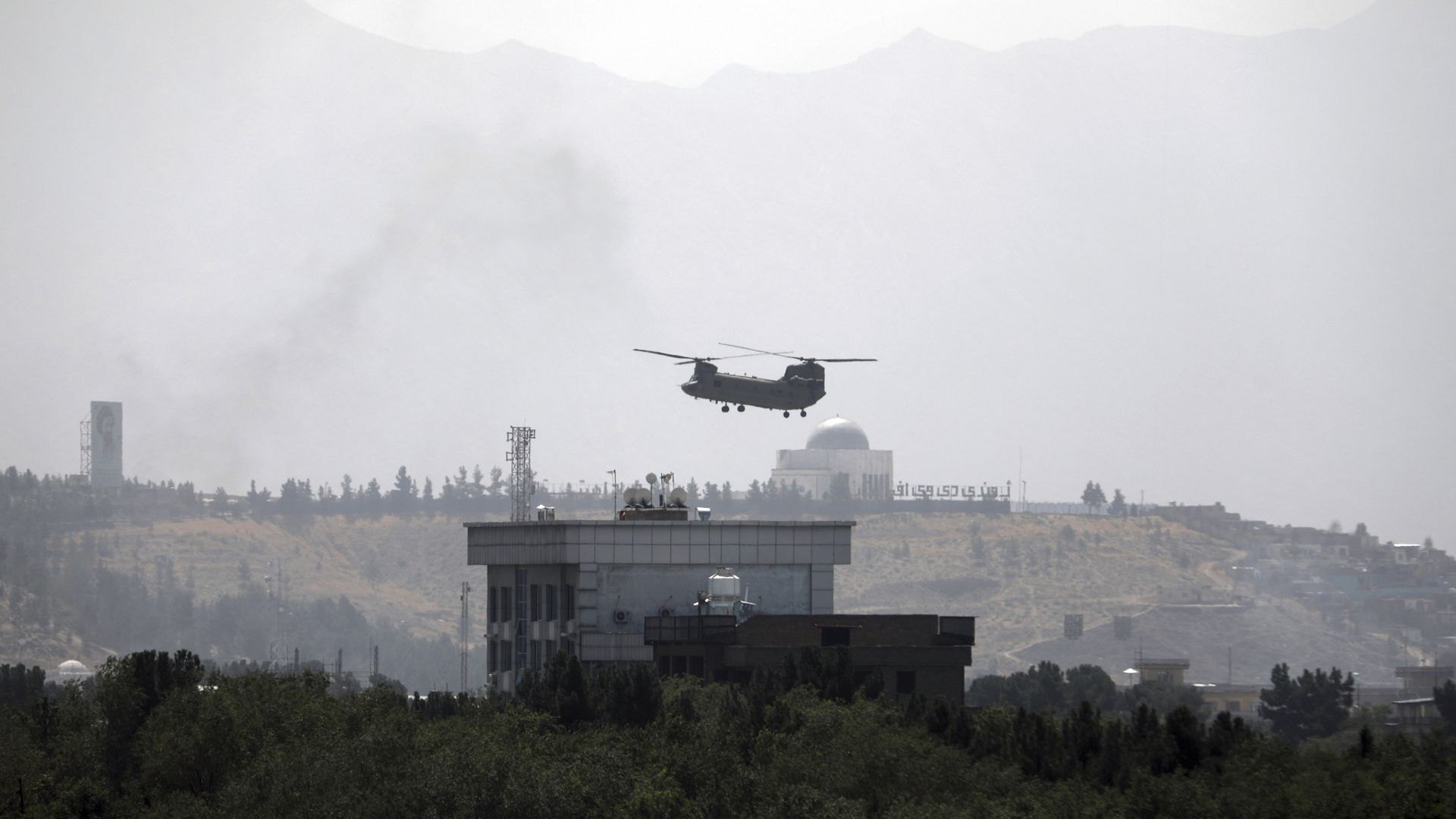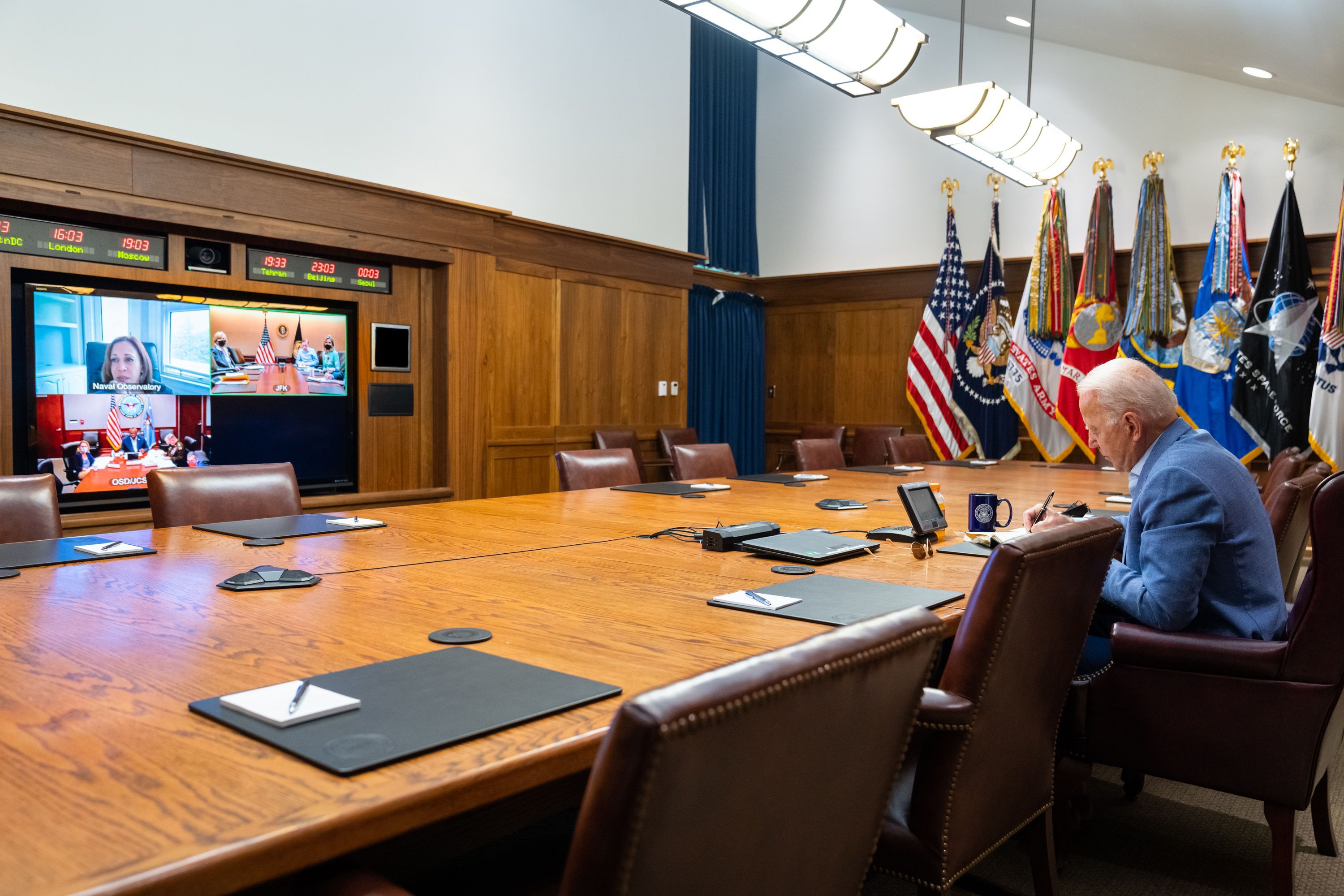Mike Allen

Rarely has an American president's predictions been so wrong, so fast, so convincingly as President Biden on Afghanistan. Usually military operations and diplomacy are long; the outcomes, foggy. Not here.
Flashback: Just five weeks ago, President Biden assured Americans: "[T]he likelihood there’s going to be the Taliban overrunning everything and owning the whole country is highly unlikely."
In April, Biden said: "We will not conduct a hasty rush to the exit. We'll do it responsibly, deliberately and safely."
This morning, the Taliban is entering the Afghanistan capital, Kabul, "from all sides," a senior Afghan official told Reuters. Jalalabad, the last major city besides the capital not held by the Taliban, fell earlier today.
Afghan forces today surrendered Bagram Air Base, the Grand Central of America's longest war, to the Taliban.
CNN showed video of choppers over Kabul — believed to be ferrying U.S. diplomats to the airport.
The U.S. is completely pulling out of the embassy over the next 72 hours, and Taliban representatives are at the Kabul presidential palace, CNN reports.
The top of the Sunday New York Times: "Free Fall in Afghanistan."
The big picture: It's a stunning failure for the West, and embarrassment for Biden. And it's a traumatic turn for U.S. veterans who sacrificed in Afghanistan over the past 20 years, the 20,000+ wounded in action, and survivors of the more than 2,300 U.S. military personnel who were killed.
Ryan Crocker, a U.S. ambassador to Afghanistan under President Obama, said last weekend on ABC's "This Week": "I think it is already an indelible stain on his presidency."
Richard Fontaine, head of the Center for a New American Security and former foreign policy adviser to Sen. John McCain, told Axios: "It's striking that, with 20 years to think it over, the United States withdrew its forces without a plan for the aftermath.
"As the bulk of American troops departed," Fontaine added, "there was no plan for securing regional base access, for the contractors that maintain the Afghan military, for training that military after the U.S. departure, for evacuating interpreters and helpers."
 At Camp David on Saturday, President Biden held a video conference on Afghanistan with his national security team. Photo: The White House
At Camp David on Saturday, President Biden held a video conference on Afghanistan with his national security team. Photo: The White HouseBetween the lines: Critics of the Biden approach tell me it's not the drawdown per se that they object to. It's that the U.S. was run out of town, rather than planning a measured and managed departure.
Doug Lute, a retired Army general who directed Afghan strategy at the NSC for Presidents George W. Bush and Barack Obama, told The New York Times that the puzzle for him "is the absence of contingency planning: If everyone knew we were headed for the exits, why did we not have a plan over the past two years for making this work?"
A top U.S. government official gave me a window into Biden's thinking, which boils down to three points:
Any other alternative would have been worse.
The collapse proves that if the U.S. stayed, it would have been Americans in a shooting war with the Taliban, with an unknown number of casualties, and no end in sight.
Americans support bringing troops home.
"If people think our August withdrawal is too fast, what would a May withdrawal have looked like?" the official said, referring to President Trump's deadline of May 1.
"And if people think we should stay — whose kids are they sending to fight the Taliban when the Afghan army won’t?"
No comments:
Post a Comment